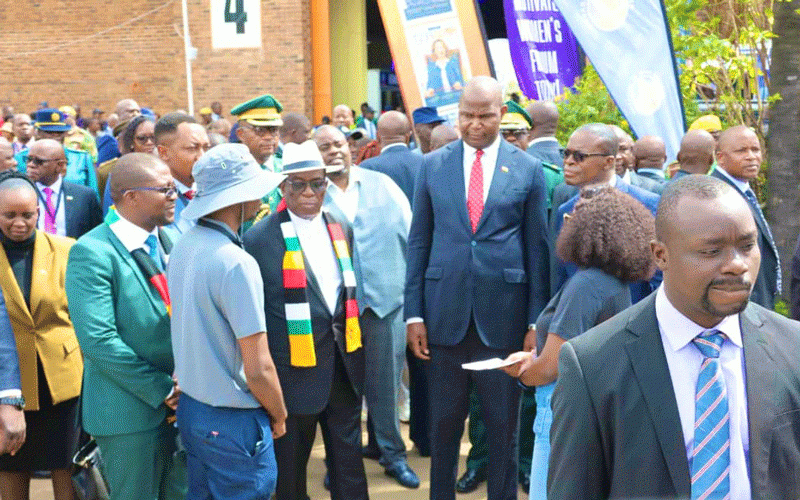
Even some of his top lieutenants were last year exposed in controversial whistle-blowing website WikiLeaks that they were secretly meeting United States diplomats to discuss Mugabe’s exit.
But not much is being said about the contribution to the current situation of some of these lieutenants who have been in government with Mugabe for the past 32 years.
The Standard takes a look at the performance of some of the cabinet ministers who have been in government since the 1980’s.
EmMerson Mnangagwa
Defence minister Emmerson Mnangagwa is one of the longest serving government ministers and was once touted as Mugabe’s heir apparent. At Independence in 1980 Mnangagwa became the first black Minister of State for Security responsible for the Central Intelligence Organisation (CIO). The CIO, just like its colonial predecessor, became dreaded for suppressing real and imagery opponents.Together with the fifth Brigade of the army, the CIO was accused of committing atrocities in Matabeleland and Midlands provinces which saw the death of thousands of people during the now infamous Gukurahundi era whose scars remain visible up to today with victims and survivors calling for justice.
Mnangagwa later became Minister of Justice, Legal and Parliamentary Affairs. He promised sweeping media reforms, including the scrapping of the notorious criminal defamation act, but this never happened.In 2005, after spending five years as Speaker of Parliament, where he was said to have earned the respect of both Zanu PF and then opposition MDC, Mnangagwa was “demoted” to Minister of Rural Housing and Social Amenities after the “uncovering” of the so-called Tsholotsho “coup” attempt in 2004.
As Defence minister, Mnangagwa is linked to the notorious Joint Operations Command (JOC) comprising military and other security officials who masterminded Mugabe’s re-election in the bloody 2008 elections.
- Chamisa under fire over US$120K donation
- Mavhunga puts DeMbare into Chibuku quarterfinals
- Pension funds bet on Cabora Bassa oilfields
- Councils defy govt fire tender directive
Keep Reading
Joice MujuruMujuru became Zimbabwe’s first woman Vice-President in 2004. She was also the first woman to become a provincial governor. Although she is energetic and at one time seen as an uncontestable successor to Mugabe, Mujuru has not distinguished herself in the various portfolios she held. Mujuru is not without controversy. When she was Minister of Information, Post and Telecommunication, she overturned a directive by acting-President Joshua Nkomo to license Econet Wireless as the third cellular operator in the country. Mujuru was rebuked by many after allegedly insulting Nkomo calling him “senile.” She has also been Minister of Youth, Sport and Recreation and that of Community Development and Women’s Affairs and Water Resources and Infrastructural Development.
Sydney Sekeramayi
Sekeramayi is the Minister of State for Security. He has kept a low profile since joining government in 1980. He has also been Minister of Defence, Health and Mines and Energy. Although he is considered bright and articulate, he has not performed well in government.The CIO which he heads stands accused of violating human rights, but he has done nothing to improve the record of the secret services, preferring to be on the sidelines leaving intelligence bosses to run the show.Mugabe is thought to be now favouring him as successor, but he is likely to face stiff resistance from the Mujuru and Mnangagwa factions.
Didymus Mutasa
Mutasa is the Minister of State in the President’s office. Mutasa’s only notable record appears to be that of stirring controversy. Mutasa was the country’s first Speaker of Parliament from 1980 to 1990. He once called parliamentarians “dead woods,” accusing them of being “unwitty” and uninspiring.
When he was appointed Minister of Special Affairs in the President’s Office in charge of the Anti-corruption and Anti-monopolies programme, graft actually blossomed with several top government and Zanu PF officials implicated in corruption scandals. The grabbing of white-owned farms accelerated when he was Minister of State for National Security, Lands, Land Reform and Resettlement. Mutasa himself was accused of helping himself to several farms.
Mutasa was involved in a bizarre hoax of the infamous diesel n’anga, Rotina Mavhunga who fooled Mugabe’s cabinet and Zanu PF that refined diesel was gushing from a hill in Chinhoyi.
Simbarashe Mumbengegwi
Mumbengegwi is the Minister of Foreign Affairs, but is largely considered a joker. He was deputy speaker of Parliament in 1980 before being appointed deputy Minister of Foreign Affairs. He later served as Minister of Water Resources and Development, National Housing and Transport but had to be demoted to the diplomatic service role due to poor performance. As Minister of Foreign Affairs, relations with Western countries which imposed sanctions on Zimbabwe have not improved.
Health woes seem to undermine Nkomo’s performance
John Landa Nkomo
Nkomo (pictured) has been Vice-President since 2009 after succeeding Joseph Msika who succumbed to cancer. He was previously Minister of National Healing, Reconciliation Integration, Speaker of Parliament, Minister of Home Affairs, and that of Local Government and Rural Development.
Nkomo’s performance leaves a lot to be desired. His political star seems to be waning due to mounting health problems. In 2011, he was in and out of the country seeking medical attention for life-threatening cancer.











